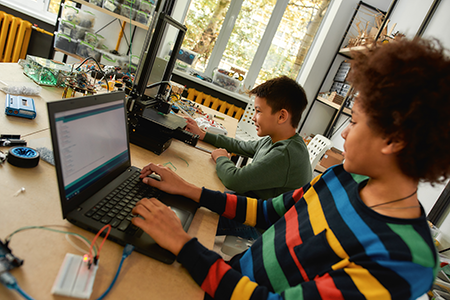Building Resilience in Children

Resilience is the ability to recover quickly from difficulties you may face. Resilience is important for people of all ages for all situations you may face in your lifetime.

Resilience in Children
Building resilience in children is something that pediatrician Kenneth Ginsburg, M.D., MS Ed, FAAP at Children’s Hospital of Philadelphia has studied. In fact, he partnered with the American Academy of Pediatrics to write the book A Parent’s Guide to Building Resilience in Children and Teens: Giving Your Child Roots and Wings.
Dr. Ginsburg summarizes what we know for sure about the development of resilience in kids:
- Children need to know that there is an adult in their life who believes in them and loves them unconditionally.
- Kids will live “up” or “down” to our expectations.

The 7 C’s
Dr. Ginsburg identifies the 7 “C’s” as the pillars of building resilience in children and young adults.
- Competence
- Confidence
- Connection
- Character
- Contribution
- Coping
- Control

Competence
An essential aspect of building a sense of competence is allowing your children to make decisions and perform tasks that bring out their strengths or talents. If you choose to take over a task, be sure that the child does not feel that you do not believe they are incapable. One last tip: be careful to avoid comparisons between siblings when discussing competencies.

Confidence
Every parent wants their children to believe in themselves. As an adult influence, it is essential to give praise when a child has done something well; do not be afraid to be specific, such as pointing out acts of kindness and showing integrity. Conversely, try to protect the child from taking on more than they can realistically handle.

Connection
A sense of belonging in a family unit and community is essential for a child to feel a sense of positive connection. Aspects that contribute to this pillar can be as simple as ensuring that home is a place where children feel safe and loved.
Children and adolescents also need to have a safe place to express their feelings and emotions so that they do not learn to be ashamed of such emotions in the future.

Character
Developing morals and values is something that can be taught at a young age by showing empathy and support to others. Helping children see how behaviors impact others is an essential part of cultivating character.

Contribution
By teaching children how to contribute in their household and community, and with the right motivational support, they learn that the world is a better place because they are in it. Supporting children and teens in serving others allows them to learn this lesson first hand.

Coping
Stresses of life are inevitable, and you can teach your children how to see challenges as opportunities. Take time to discuss if and how a situation could have been improved, or what lesson they learned from that experience.

Control
While we cannot control every aspect of life, children can learn the importance of cause and effect. Empower children to think about the possible outcomes of their decisions.
If you would like to learn more about Dr. Ginsburg’s work, please visit HealthyChildren.org

Download the Free Resource
Access a printer-friendly version of the resource to reference later.